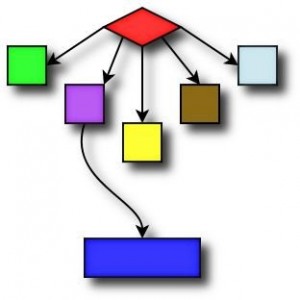Paraphrase when translating
 Here’s a quick and easy tip to make translation more straightforward, particularly in exam situations.
Here’s a quick and easy tip to make translation more straightforward, particularly in exam situations.
If you come across a sentence that has a complex structure or is particularly idiomatic, you might struggle to translate it effectively into a language you don’t know natively.
In most translation situations, though, you probably don’t need to convey the _exact _nuances and linguistic baggage of a particular sentence. So long as you’re getting an equivalent meaning into someone’s mind, you can get away with a bit of reprocessing and streamlining.
This might sound like sacrilege, but unless you’re translating high literature or poetry, the basic meaning is by far the most important information a sentence carries. It’s better to lose the extra stuff and get that root information across than to mangle the sentence in translation as you try to transmit the superfluous bits.
Paraphrase to create a set of options
A really quick method is just to take the sentence that needs translating, and paraphrase it as much as possible, until you get a sentence you’re confident you can translate correctly and elegantly.
For example, our lecturer Emma Wu gave us this sentence in English, which needed translating into Mandarin:
I can’t praise them highly enough.
My first thought was to translate it literally into something like
他们我不能称赞得太多。
Tāmen wǒ bù néng chēngzàn de tàiduō.
However, I wasn’t sure if this was even grammatical, and suspected it was almost certainly not idiomatic in Mandarin. Emma’s method is to think of various paraphrases in English, in order to find an easier candidate for translation.
- I should praise them highly.
- They deserve high praise.
- No praise is too high for them.
- No matter how much I praise them, it wouldn’t be too much.
This last one, despite being the longest, actually converts quite pleasingly into Mandarin with some ease, and almost completely captures the sense of the original sentence. It’s not particularly idiomatic in English, but that doesn’t matter here; its only purpose is as an intermediary stage that will be discarded afterwards.
不管我怎么称赞他们,都不会过分。
Bùguǎn wǒ zěnme chēngzàn tāmen, dōu búhuì guòfēn.
And we now have what seems to be a nice Mandarin sentence that conveys the English “I cannot praise them highly enough” with quite a lot of accuracy.
Credit to Emma Wu for this tip.
